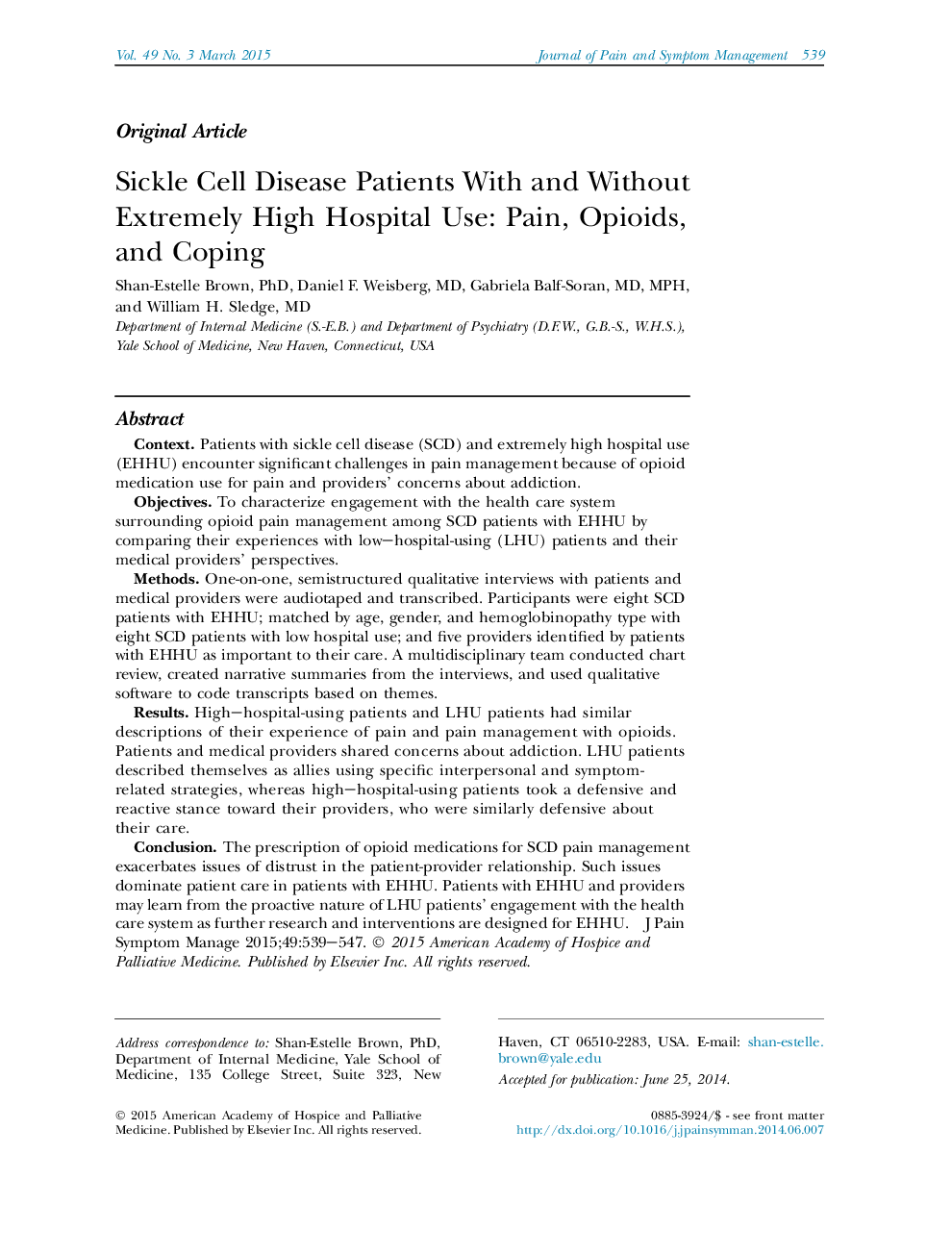| Article ID | Journal | Published Year | Pages | File Type |
|---|---|---|---|---|
| 5879397 | Journal of Pain and Symptom Management | 2015 | 9 Pages |
ContextPatients with sickle cell disease (SCD) and extremely high hospital use (EHHU) encounter significant challenges in pain management because of opioid medication use for pain and providers' concerns about addiction.ObjectivesTo characterize engagement with the health care system surrounding opioid pain management among SCD patients with EHHU by comparing their experiences with low-hospital-using (LHU) patients and their medical providers' perspectives.MethodsOne-on-one, semistructured qualitative interviews with patients and medical providers were audiotaped and transcribed. Participants were eight SCD patients with EHHU; matched by age, gender, and hemoglobinopathy type with eight SCD patients with low hospital use; and five providers identified by patients with EHHU as important to their care. A multidisciplinary team conducted chart review, created narrative summaries from the interviews, and used qualitative software to code transcripts based on themes.ResultsHigh-hospital-using patients and LHU patients had similar descriptions of their experience of pain and pain management with opioids. Patients and medical providers shared concerns about addiction. LHU patients described themselves as allies using specific interpersonal and symptom-related strategies, whereas high-hospital-using patients took a defensive and reactive stance toward their providers, who were similarly defensive about their care.ConclusionThe prescription of opioid medications for SCD pain management exacerbates issues of distrust in the patient-provider relationship. Such issues dominate patient care in patients with EHHU. Patients with EHHU and providers may learn from the proactive nature of LHU patients' engagement with the health care system as further research and interventions are designed for EHHU.
